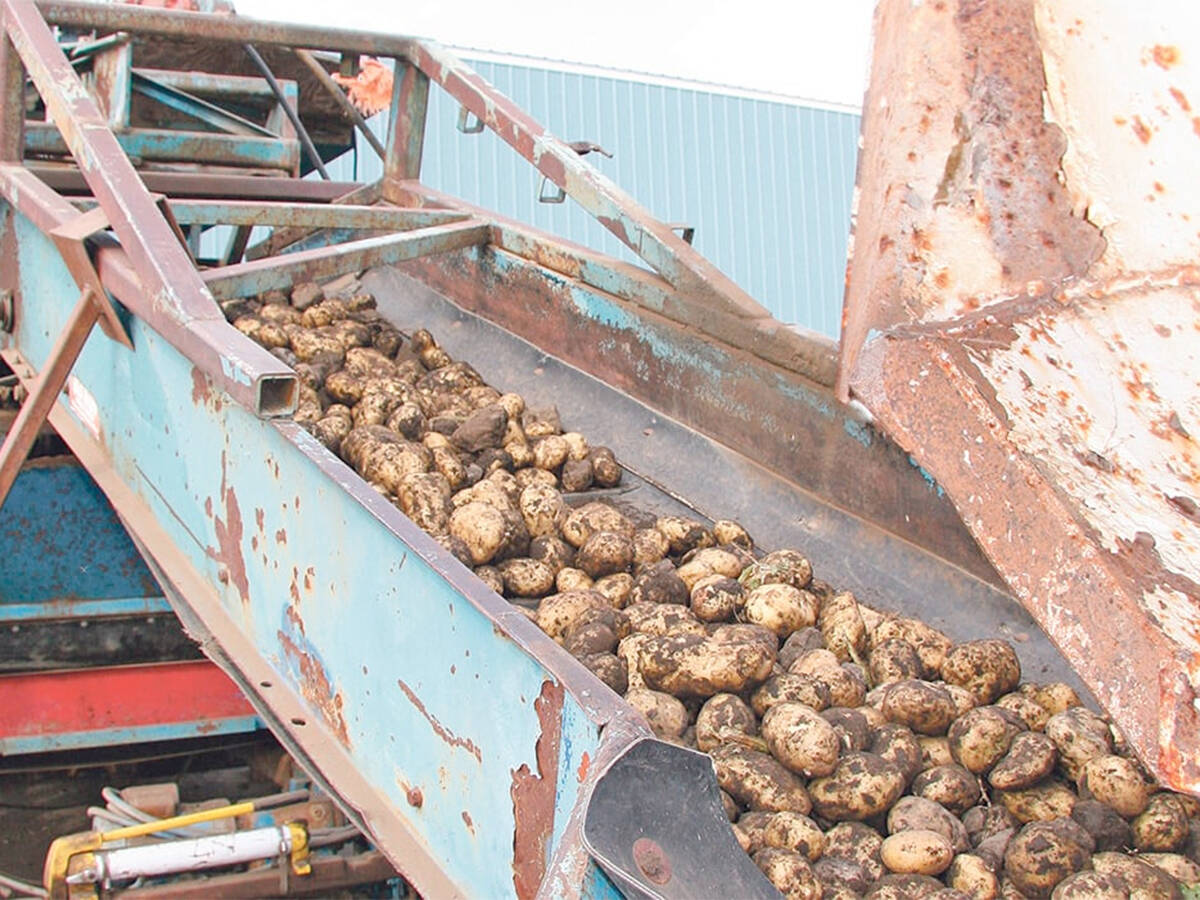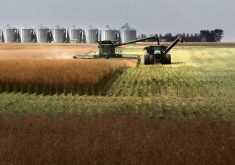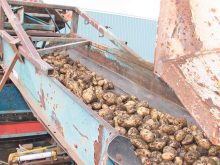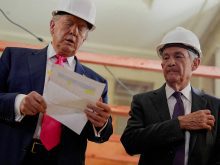Glacier FarmMedia – On May 16 last year, British Prime Minister Rishi Sunak published an open letter to farmers in his country detailing government priorities for future free trade deals. Sunak listed six principles, which he said will protect and assist British farmers. One of those had big implications free trade with Canada.
“Without exception, we will continue to protect food standards in the U.K. under all existing and future free trade agreements,” Sunak wrote. “There will be no chlorine-washed chicken and no hormone-treated beef on the U.K. market. Not now, not ever.”
The letter illustrates one of the sticking points in now-stalled trade talks between Canada and the U.K.
Read Also

Potato growers beware new PVY strains
Newer strains of potato virus Y (PVY) are creating headaches for potato farms in Eastern Canada, and Manitoba farmers should pay attention
The two countries have been trying to negotiate a revised U.K.-Canada free trade agreement that would replace the temporary deal established in light of Britain’s exit from the European Union. “Brexit” cut the U.K. out of the Comprehensive Economic and Trade Agreement between Canada and the EU. That three-year deal was based on Canadian principles and the wording of CETA.
This winter, the British government suspended discussions with Canada, saying progress was stalled. Beef and cheese were major topics of contention. The timing of Britain’s next federal election, either this fall or early in 2025, further complicates forward movement on the deal.
“They suspended the talks in the context of the electoral period. So, it’s hard to believe they would change their mind on anything at this stage,” said Michael Harvey, executive director of the Canadian Agri-Food Trade Alliance.
British cheesemakers lost tariff-free access to the Canadian market at the end of 2023 with the end of the temporary deal. As of Jan. 1, Canada imposed a 245 per cent tariff on U.K. cheese. British negotiators were frustrated with Canada’s stance, but that anger was matched by Canadian cattle producers and meat processors.
Those sectors have long been upset at regulatory hurdles they say stymy their access to British meat markets, despite being promised that access on paper. British refusal to recognize Canadian production and food safety standards such as certain carcass washes stands in conflict with the spirit of Britain’s trade obligations, the Canadian industries argue.
Canadian meat was “severely disadvantaged” under the interim deal, the Canadian Cattle Association said last year. They, along with the Canadian Meat Council and National Cattle Feeders’ Association, launched a campaign last year called “Say no to a bad deal.” It called on the federal government to delay U.K. entry to another major trade deal, the Comprehensive and Progressive Agreement for Trans-Pacific Partnership (CPTPP), until a fair bilateral deal was reached between Canada and the U.K. The Canadian Pork Council joined the campaign in early 2024.
The federal government and Ralph Goodale, Canada’s ambassador to Britain, have sided with the industry. In an opinion piece published in the Western Producer, Goodale said the U.K.’s ban on Canadian beef has “no scientific justification whatsoever.”
“It’s an entirely arbitrary non-tariff trade barrier that violates the rules of both the CPTPP and the World Trade Organization,” Goodale wrote.
There is doubt whether talks will revive once British elections are past. The country’s Labour Party, which has typically favoured protectionist trade policy, is favoured to win the election.
“It is not clear that a new U.K. Labour government will be as welcoming towards free trade as the … Conservative government under Prime Minister Rishi Sunak,” wrote David Collins, a professor of international economic law at City, University of London and senior fellow at the Macdonald-Laurier Institute.
“Indeed it (Labour) may be even more likely to erect barriers to trade in the form of senseless bans on products in the guise of health or protecting the environment.”
















